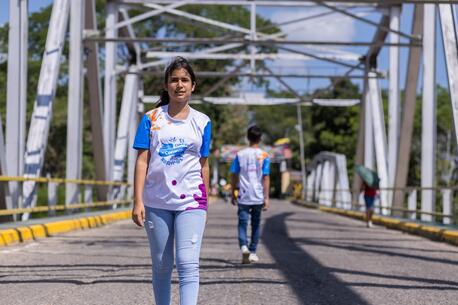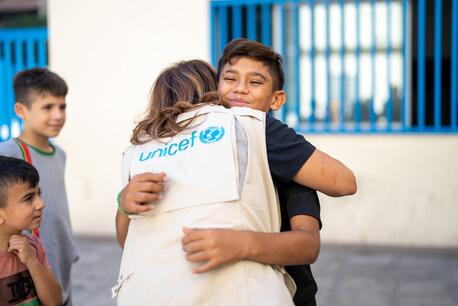
UNICEF: Risks Increasing for Children in Lebanon as Bombardment Continues, Essential Services Falter
UNICEF calls for children to be protected and the services they rely on safeguarded — in line with international law — while appealing for more support to scale emergency response measures in Lebanon and elsewhere in the Middle East as conflict escalates and children continue to suffer.
400,000 children displaced by escalating conflict in Lebanon
Children in Lebanon are at growing risk of health and protection issues – including waterborne diseases like cholera, hepatitis and diarrhea – as the continuing bombardment of the country increasingly disrupts and damages essential services that families rely on, UNICEF warns.
Dozens of water facilities have been damaged, affecting water supply to more than 360,000 people, primarily in the south. Teams assessing damage, delivering fuel and making repairs have been unable to access several affected areas, so the extent of the damage is likely higher.
Watch the video:
Ongoing bombardment has also damaged several schools, hospitals and primary health care centers, hobbling emergency medical services. Dozens of medical personnel and essential service personnel have been killed.
In areas like Beirut and Mount Lebanon, communities are struggling to meet the growing demand for water, shelter and essential supplies as displaced families continue to arrive seeking safety and support. Humanitarian agencies estimate that 1 million people lack access to health, water and sanitation services.
Based on government figures, 400,000 children are estimated to have been displaced.
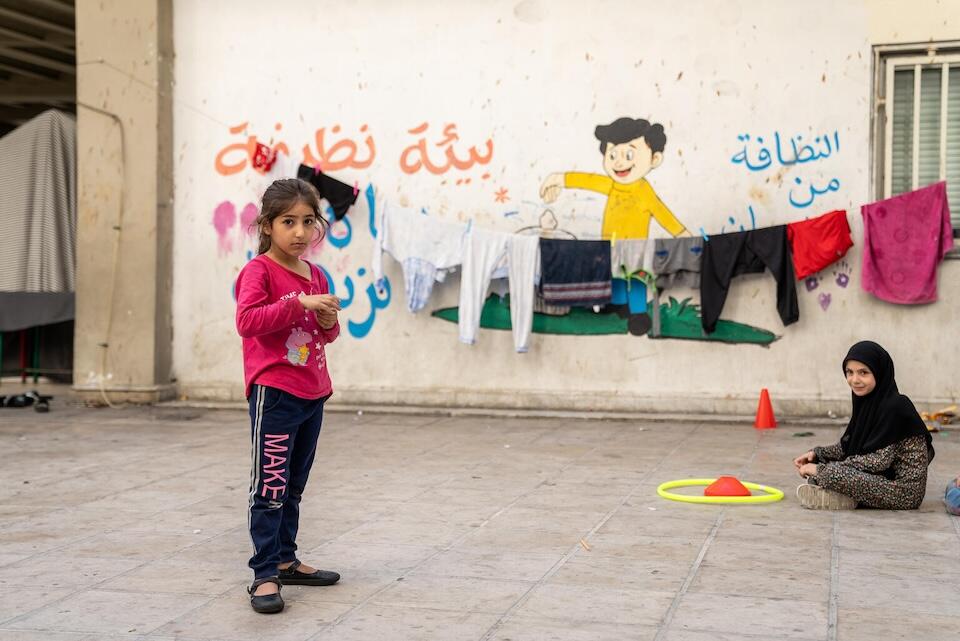
“Families are living in perilous circumstances," UNICEF Deputy Executive Director Ted Chaiban and World Food Program Deputy Executive Director Carl Skau said in a joint statement. "And as the conflict worsens, the psychological toll on the population, particularly among children and youth, is increasing. Almost every child in Lebanon has been impacted in some way."
"Almost every child in Lebanon has been impacted in some way." — UNICEF's Ted Chaiban
Under international humanitarian law, humanitarian personnel and essential service providers must be protected and civilian infrastructure safeguarded, UNICEF Lebanon Representative Edouard Beigbeder noted. "Children are suffering as the world watches these laws be blatantly disregarded," he said.
Hostilities on the Lebanon-Israel border ramped up on Sept. 23, 2024. The weeks since mark the deadliest period and largest displacement surge Lebanon has seen in decades.
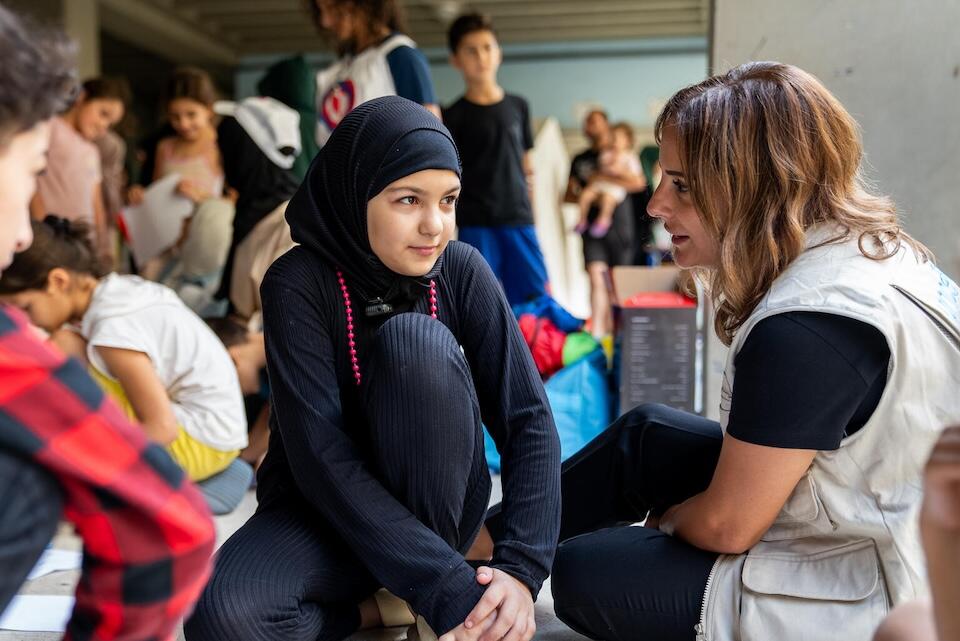
As of Oct. 8, 127 children have been killed and 890 children injured. An estimated 1.2 million people are affected by the conflict, according to the Lebanese government. National authorities have opened approximately 1,000 collective shelters for over 185,000 people, half of them women and children. More than 800 of the shelters are full.
With nearly 60 percent of all public schools being used as shelters, the start of the new school year has been postponed.
UNICEF and partners are delivering lifesaving relief to children and families impacted by escalating conflict in Lebanon — but more support is needed to scale the response
UNICEF is on the ground in Lebanon working closely with partner UN agency WFP to deliver vital support across Lebanon. WFP prepositioned food at strategic locations, effectively meeting the needs of approximately 200,000 people daily with ready-to-eat food and cash.
Working with government ministries and other partners, UNICEF is delivering primary health care, water and hygiene kits, mattresses, blankets and other supplies, along with psychosocial support services to mitigate impacts of the conflict on children's mental health.
In the first two weeks following the escalation, UNICEF delivered relief items to nearly 71,000 displaced people across 354 collective shelters and supported displaced people in 419 shelters with health care and other critical services.
UNICEF is also working with the Ministry of Education to ensure out-of-school children can continue learning.
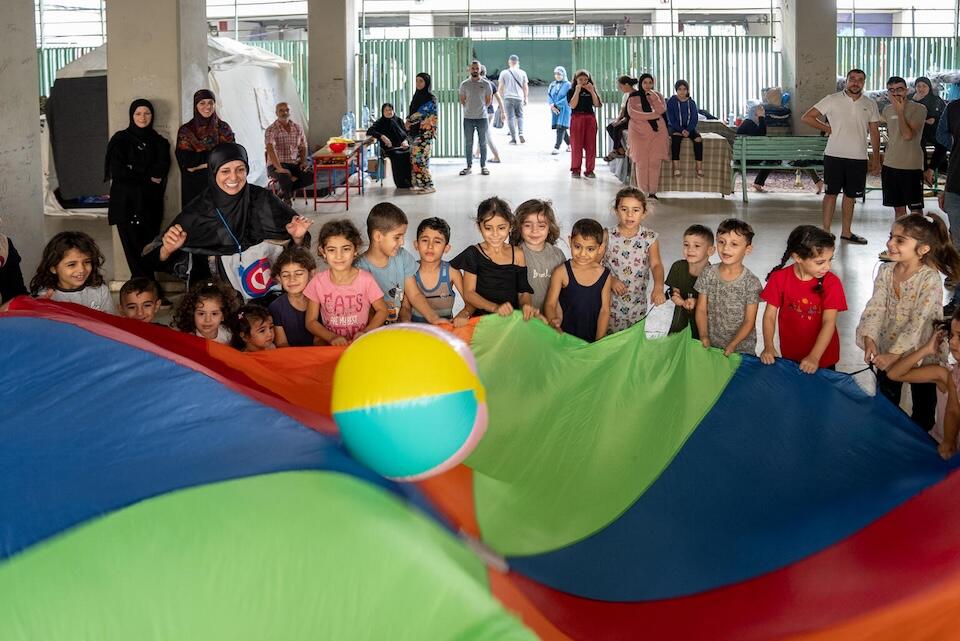
Lack of safe water perilous for children's health
Without access to safe water, children are at risk of contracting waterborne diseases like cholera and diarrhea which, without adequate treatment, can result in dehydration and death. The increased pressure and disruption to health services compound these risks.
Other diseases are at risk of spreading among displaced families, especially in crowded areas with little access to hygiene supplies and sanitation services. Thousands of people remain on the streets of Lebanon without adequate shelter, bedding or clothing.
Children are also at risk of becoming separated from their families, which increases their risk of injury, exploitation and abuse. UNICEF works with partners to identify unaccompanied and separated children and reunite them with their families.
“Above all else, the children of Lebanon need a ceasefire,” Beigbeder said. “This is the only way to protect them and ensure the aid they need can be safely delivered at scale.”
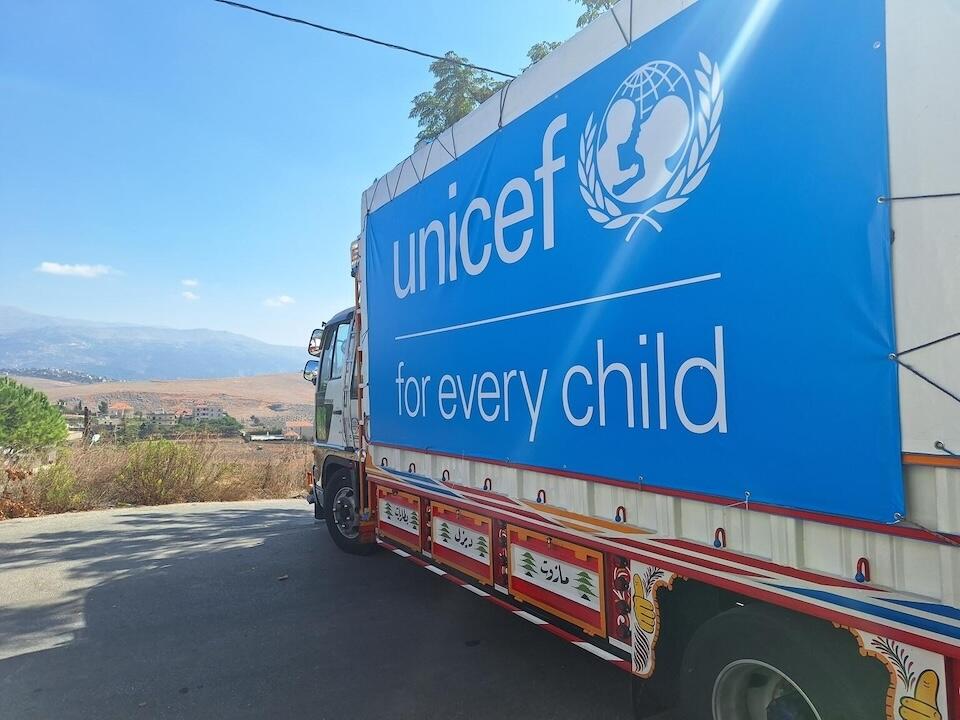
UNICEF is appealing for more support from donors to help scale the emergency response in Lebanon. Read more about UNICEF's funding needs and plans.
“We urge the international community to get behind these efforts, and collaborate in keeping ports and supply routes open, and call on parties to the conflict to ensure these routes are protected to enable unimpeded access to humanitarian assistance," Chaiban and Skau said.
“Above all else, the children and families of Lebanon need this war to end. To protect them from violence, ensure they can receive essential supplies and services, and prevent a further deterioration of the situation. A ceasefire is urgent.”
UNICEF emergency response continues in Gaza, Syria
What's happening in Lebanon is part of a wider escalation in conflict across the Middle East. While working to scale response efforts in Lebanon, UNICEF also continues working with partners to respond to related urgent needs of children and families in the Gaza Strip and Syria.
UNICEF has reached 1 in 3 people in Gaza since Oct. 7, 2023, providing assistance to close to 865,000 people, including more than 424,000 children, 23,802 people with disabilities and 98,387 women-headed households. A UNICEF-supported polio vaccination campaign that began in September has already reached over 181,000 children.
In Syria, where hundreds of thousands of refugees have fled from Lebanon, UNICEF has been able to reach thousands of children — Lebanese and Syrian — with vaccinations and nutrition support, and is providing emergency WASH (water, sanitation and hygiene) services at border crossing points.
All of these emergency response efforts are significantly underfunded.
UNICEF remains concerned about the safety of children in Israel, and the mental health impacts of conflict. Following a September visit to Israel and Gaza, Chaiban spoke to the need for a negotiated political solution that prioritizes the rights and well-being of both Israeli and Palestinian children. Hundreds of thousands of Israelis have been displaced by conflict as well.
UNICEF also continues to call for the immediate and unconditional release of all Israeli hostages. Two children remain in captivity. Learn more about UNICEF's role in Israel, Gaza and the West Bank.
Help UNICEF reach more children caught in conflict with urgently needed support and protection. Donate today.
HOW TO HELP
There are many ways to make a difference
War, famine, poverty, natural disasters — threats to the world's children keep coming. But UNICEF won't stop working to keep children healthy and safe.
UNICEF works in over 190 countries and territories — more places than any other children's organization. UNICEF has the world's largest humanitarian warehouse and, when disaster strikes, can get supplies almost anywhere within 72 hours. Constantly innovating, always advocating for a better world for children, UNICEF works to ensure that every child can grow up healthy, educated, protected and respected.
Would you like to help give all children the opportunity to reach their full potential? There are many ways to get involved.




